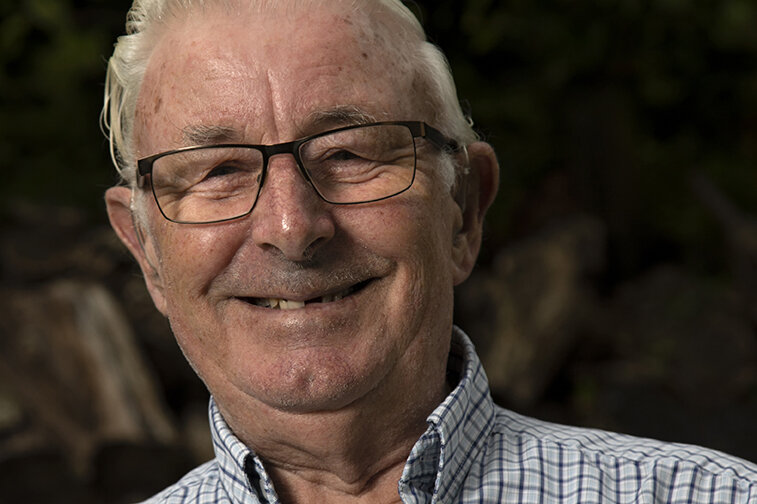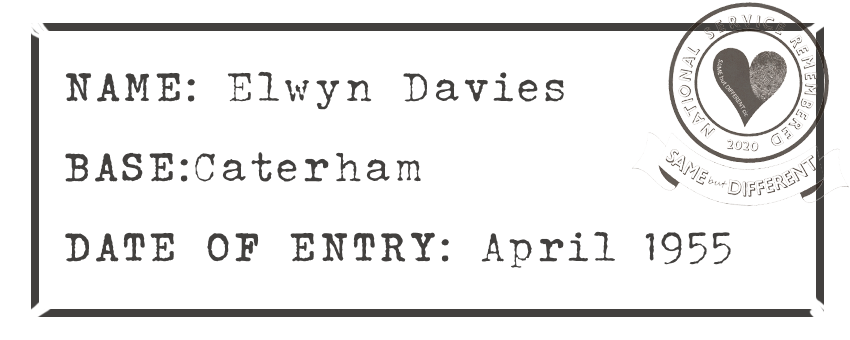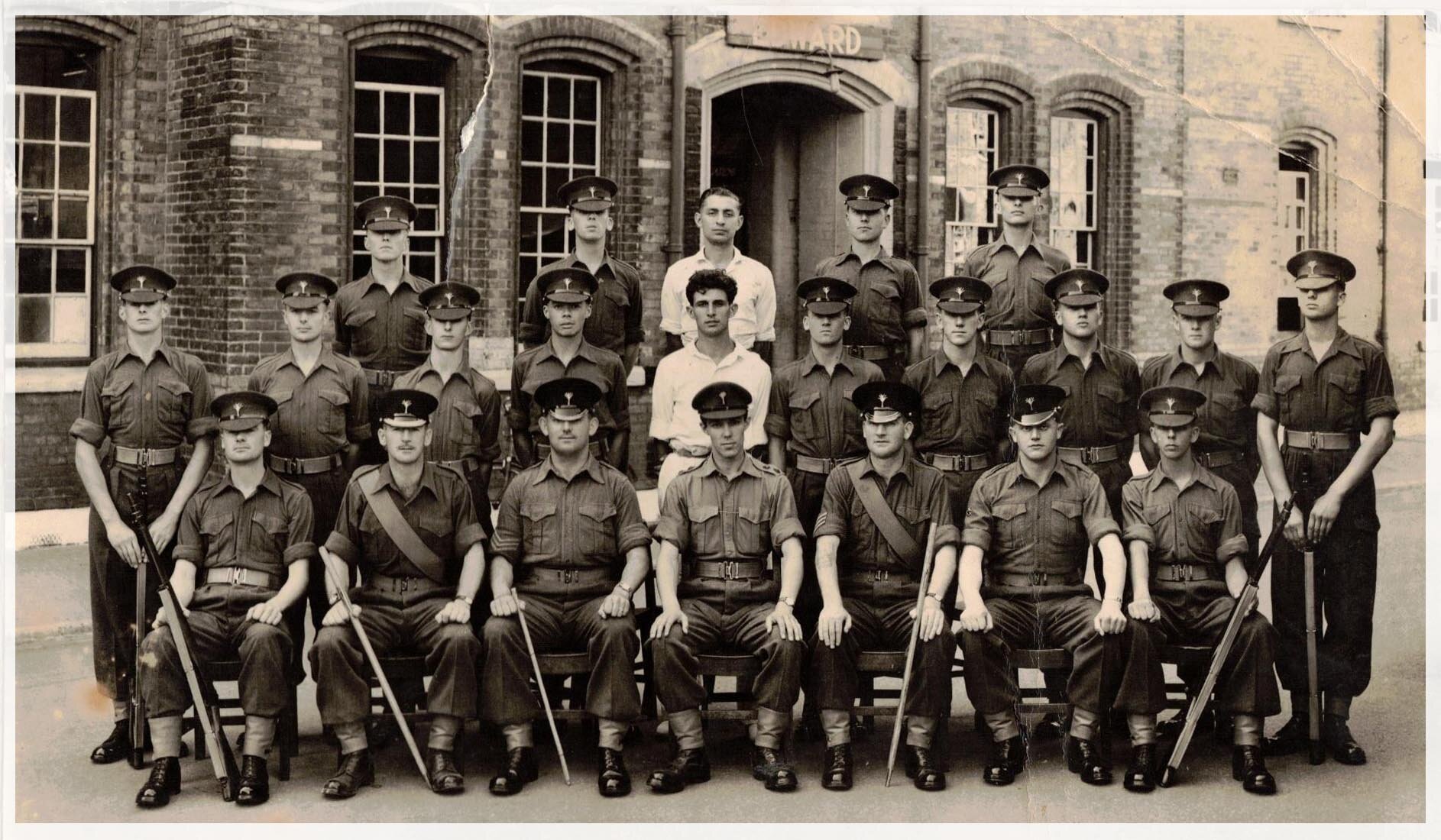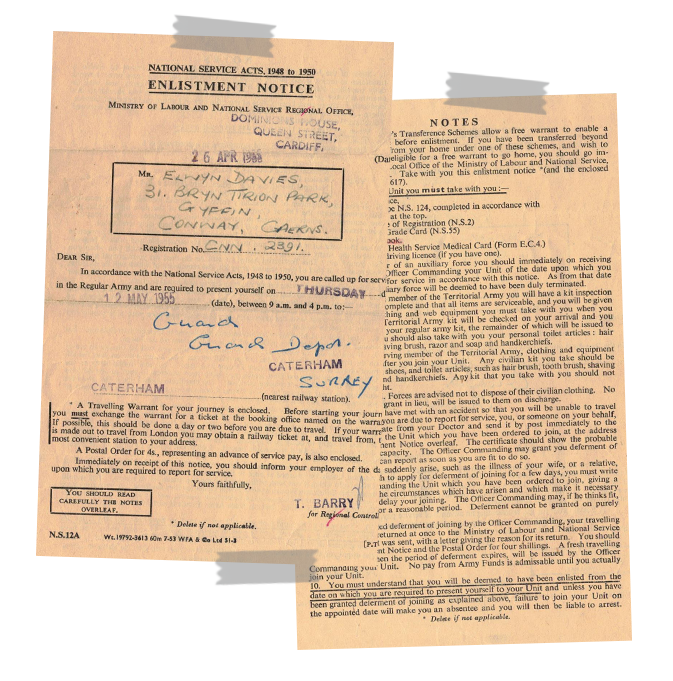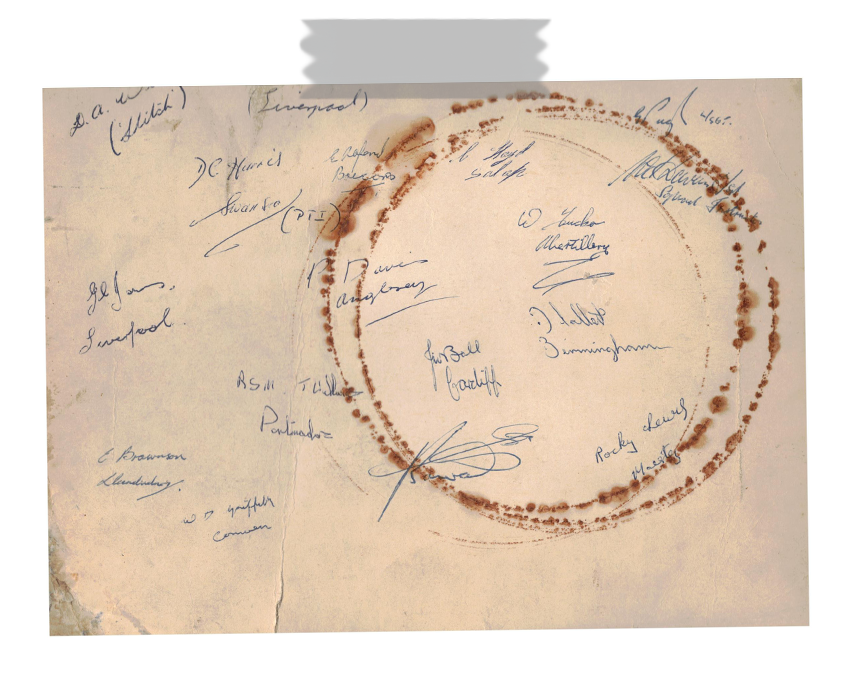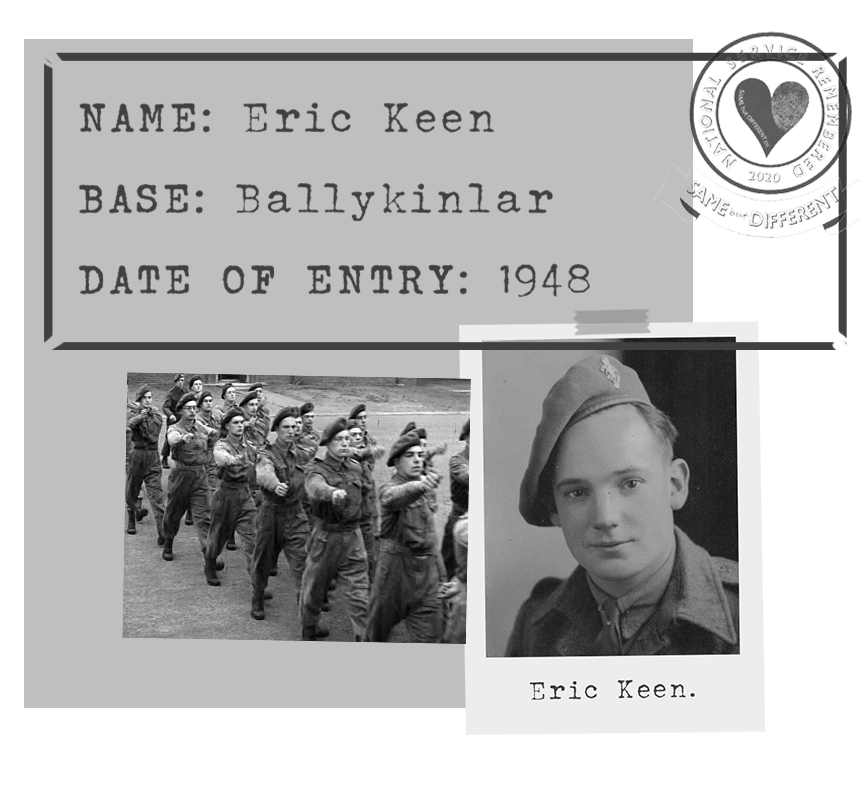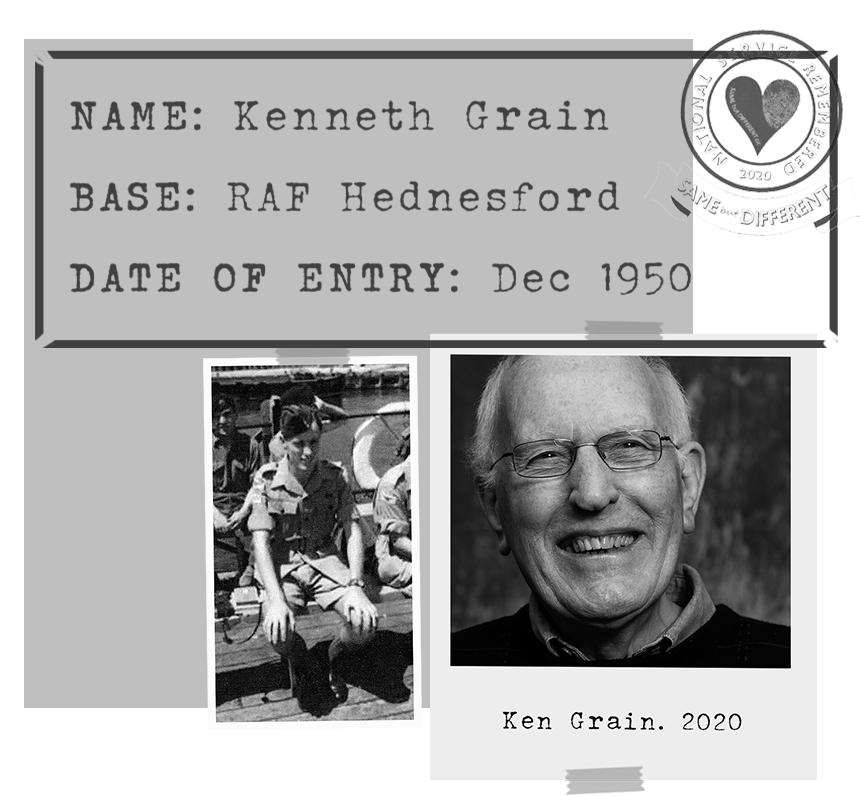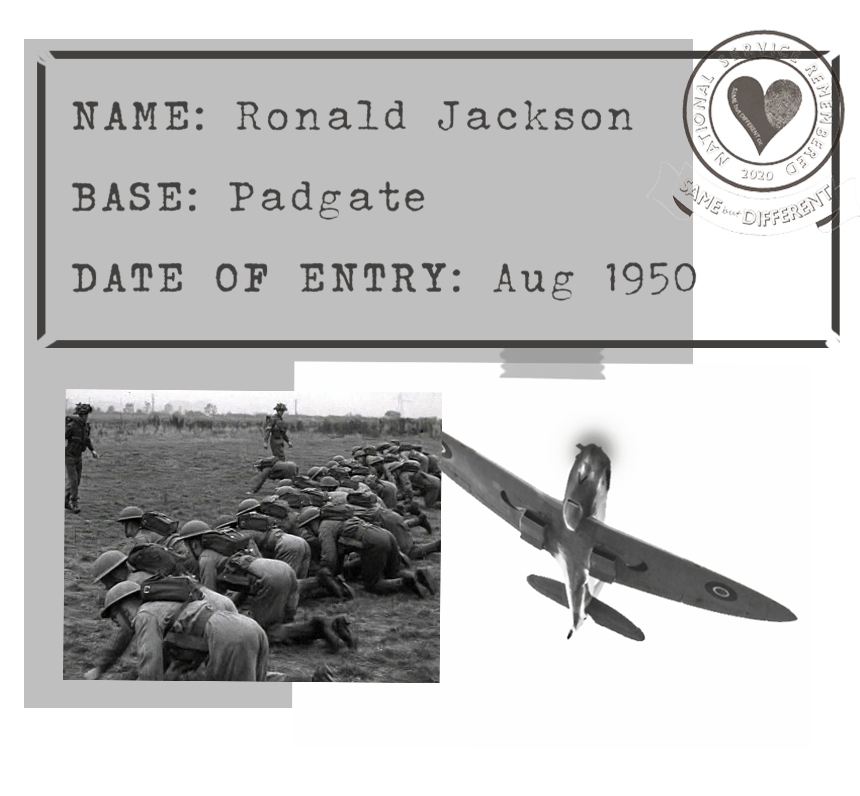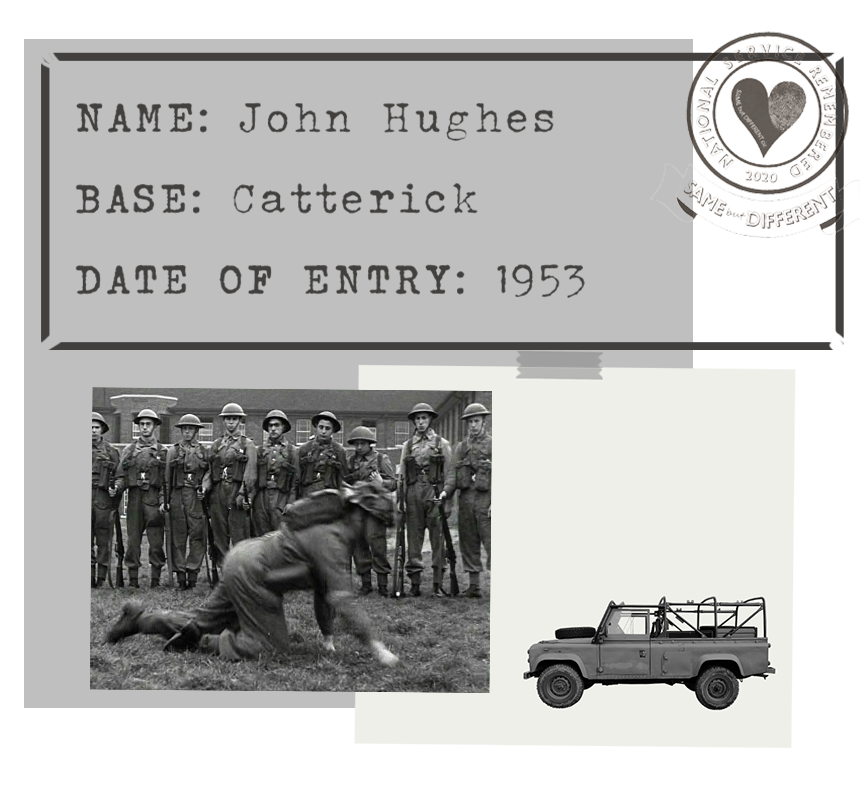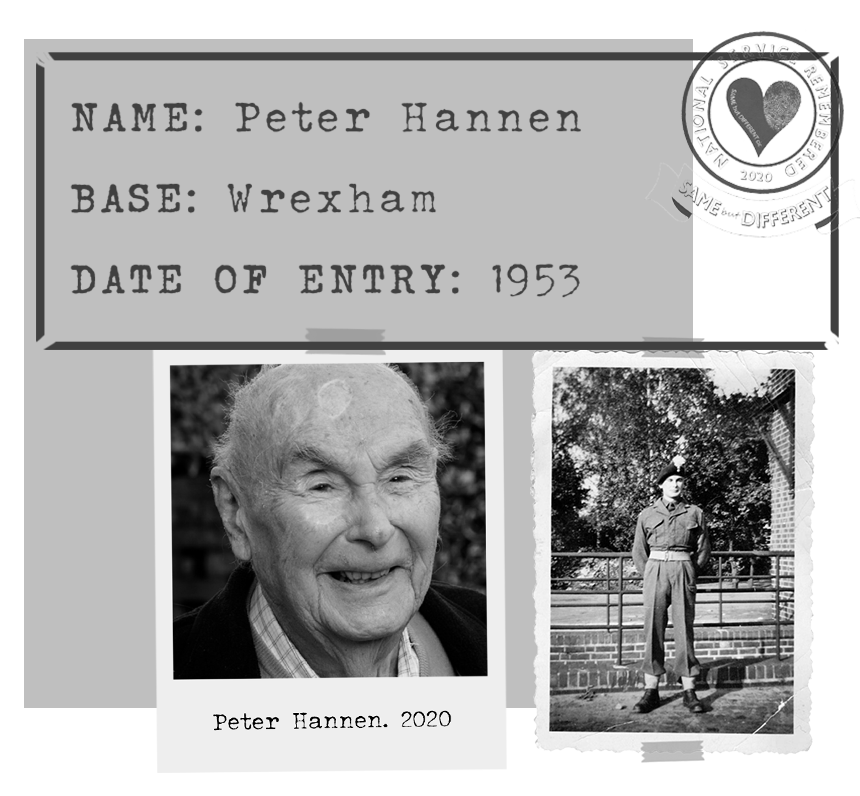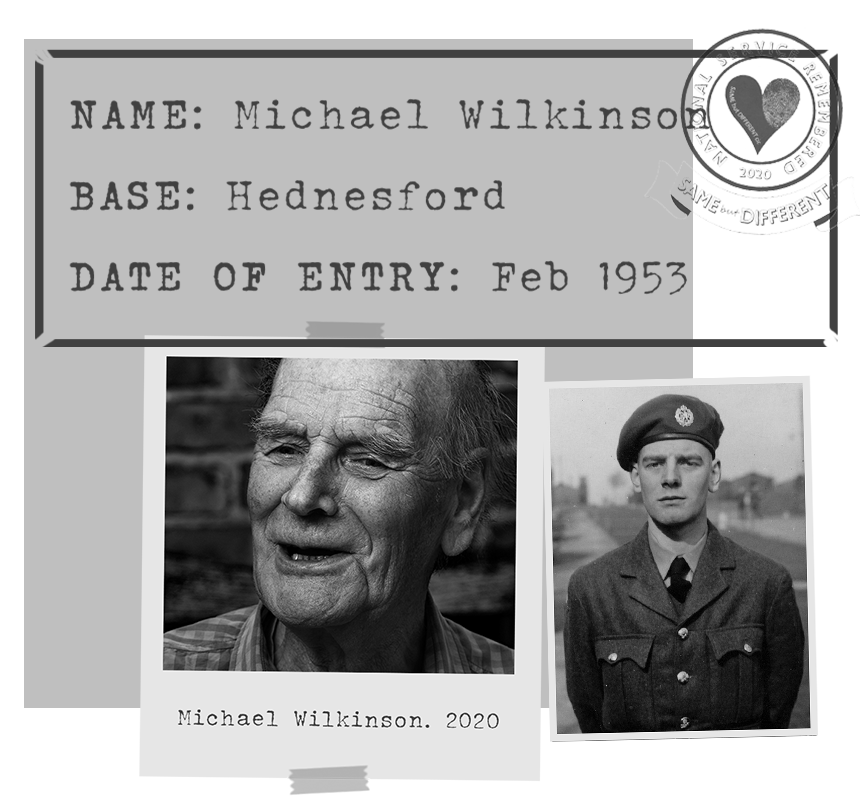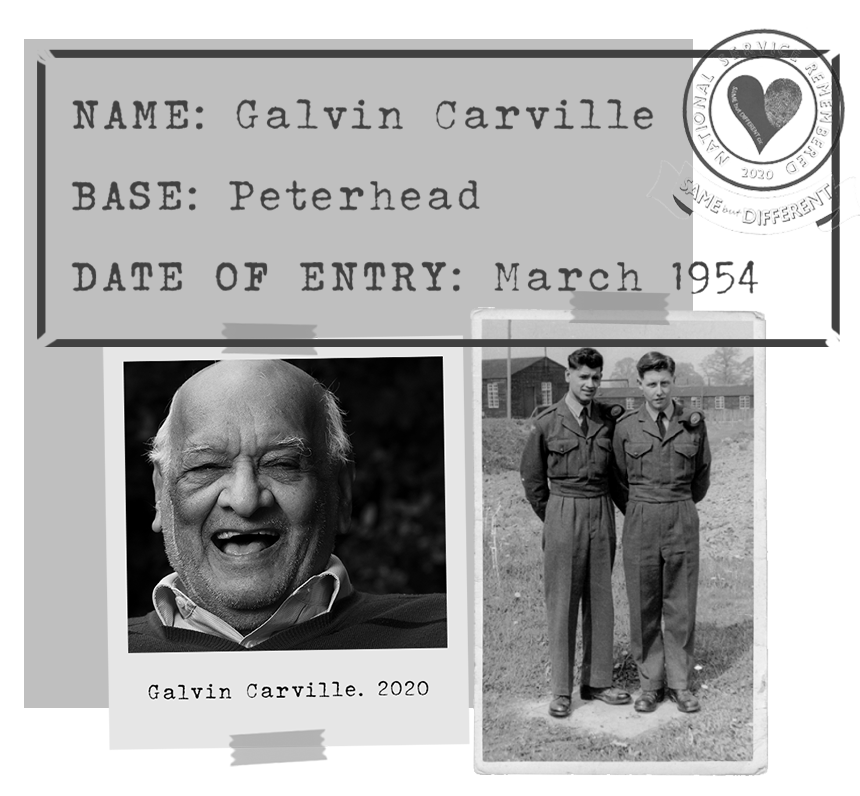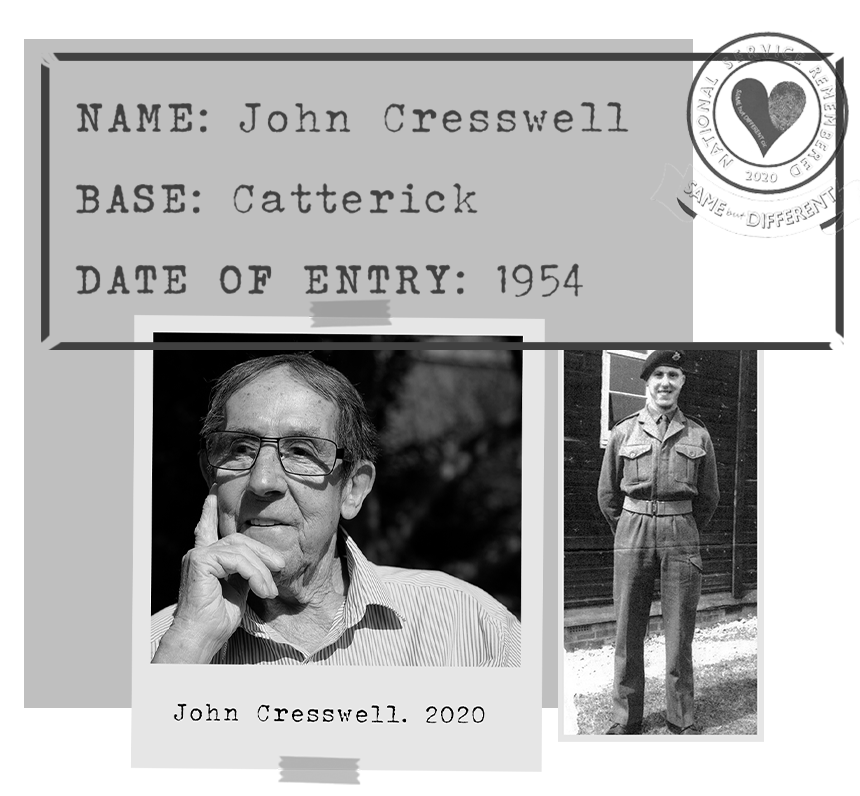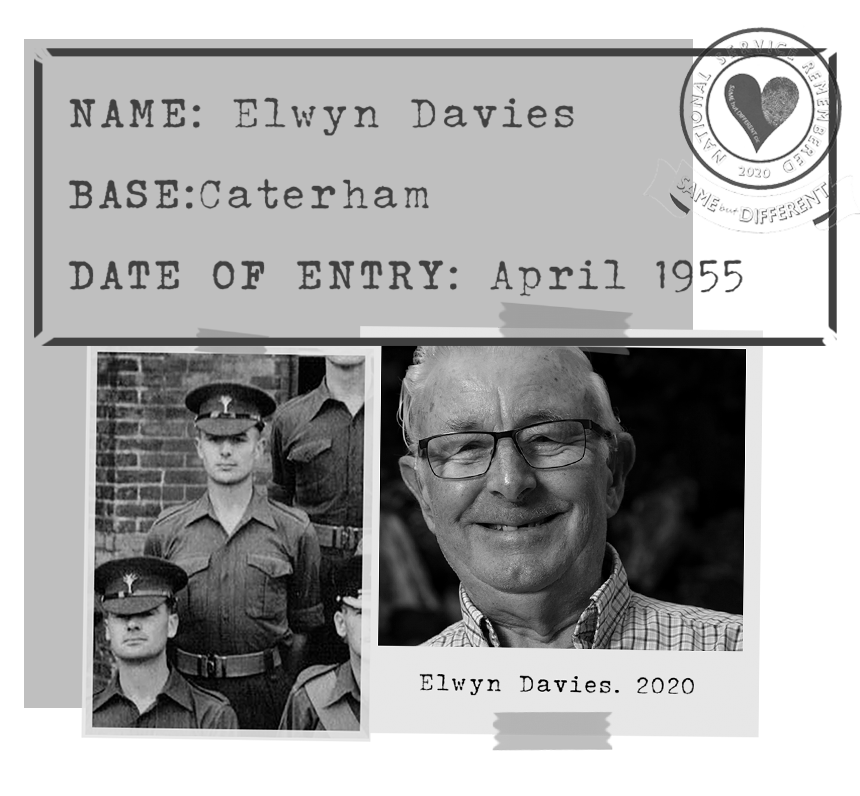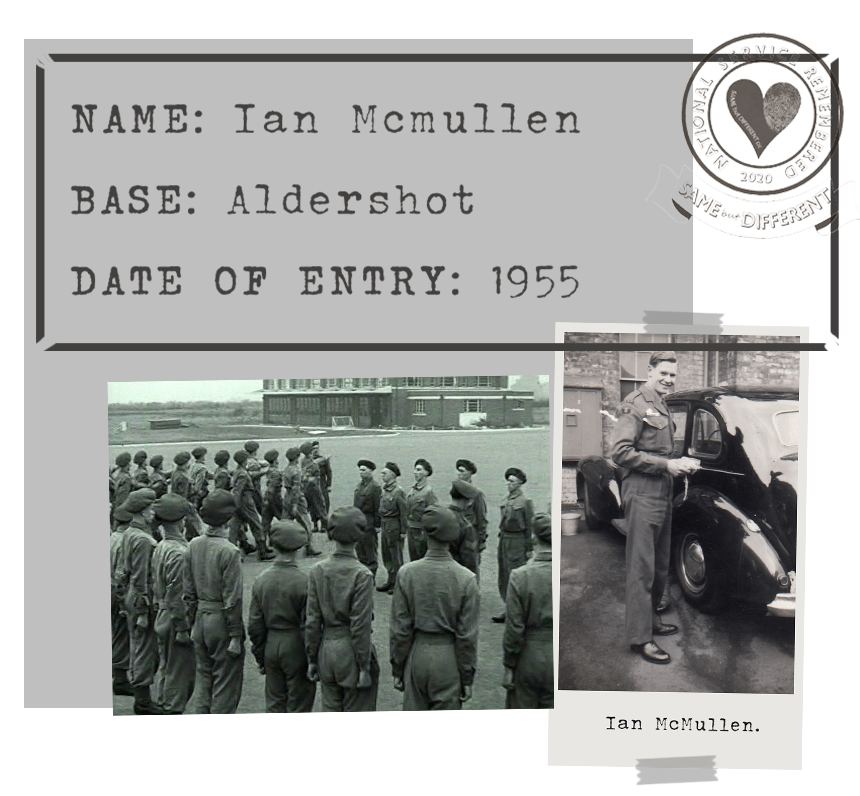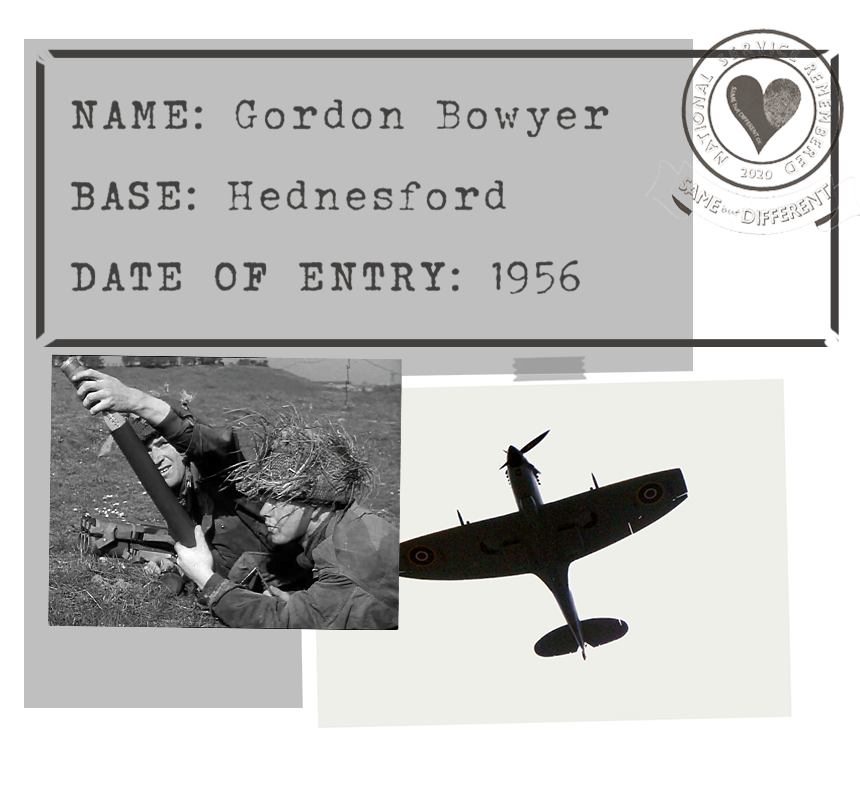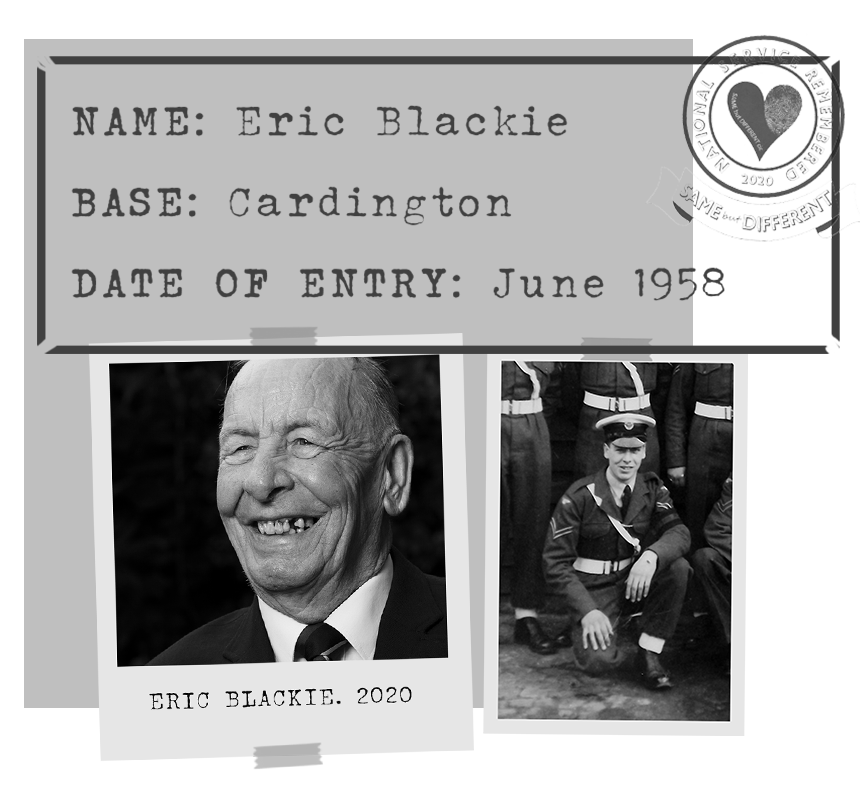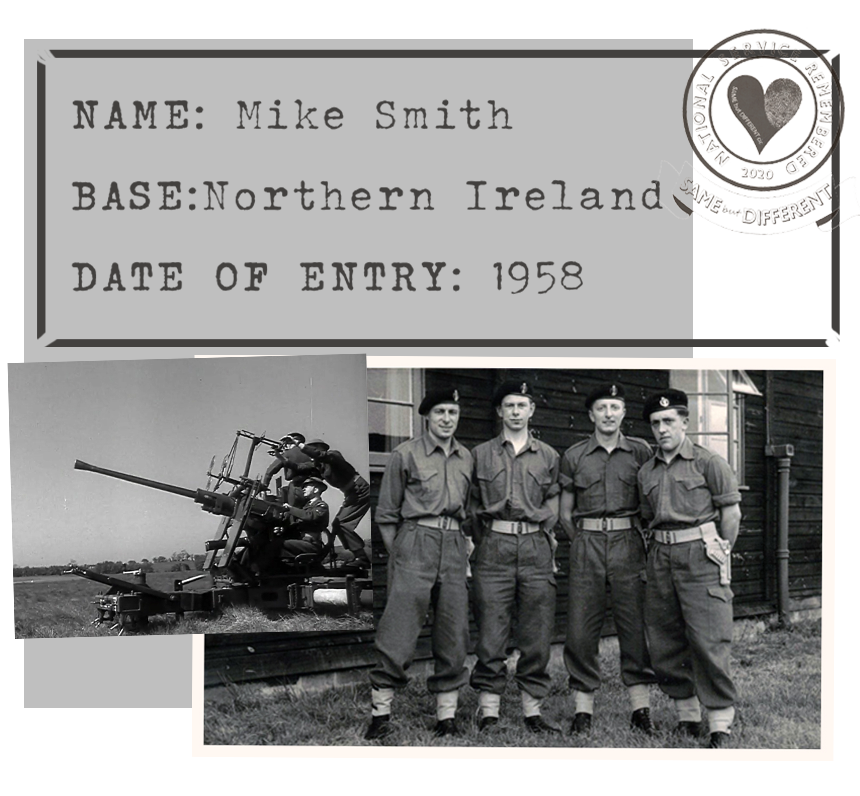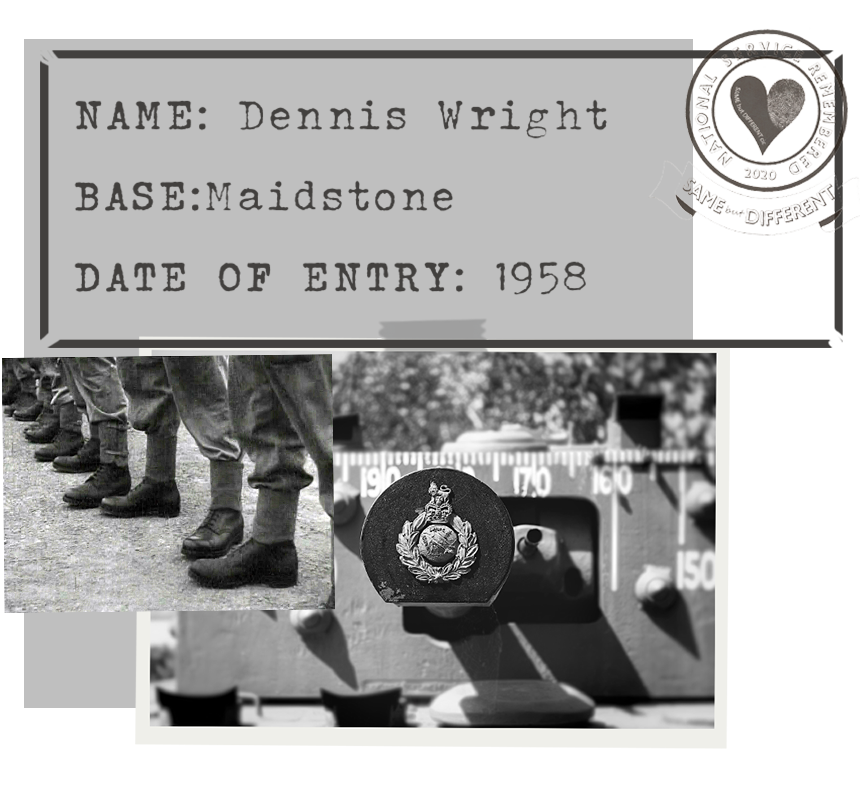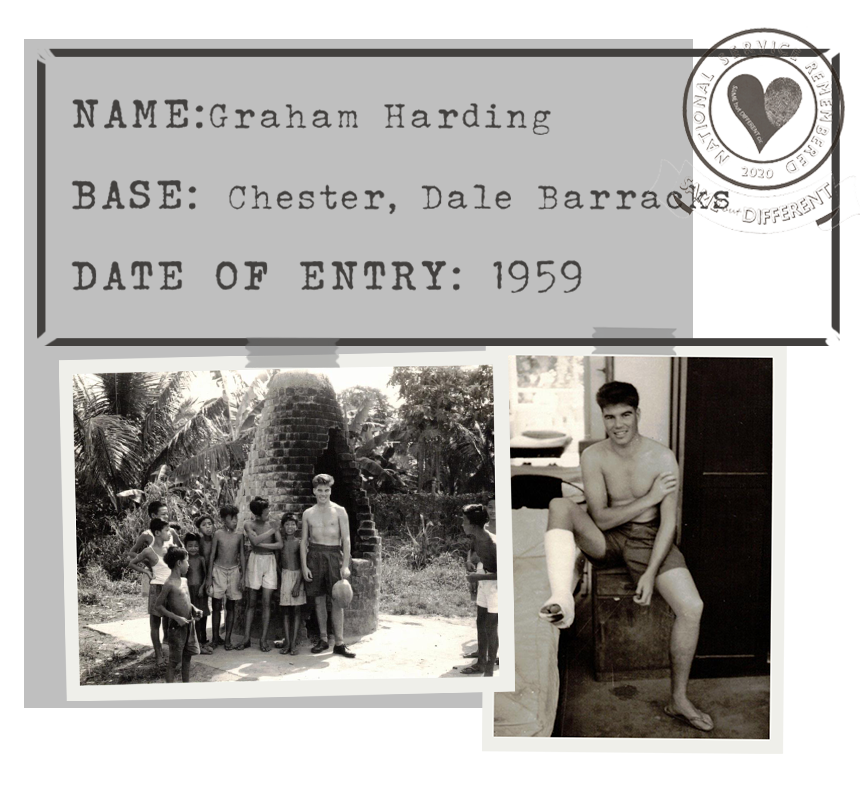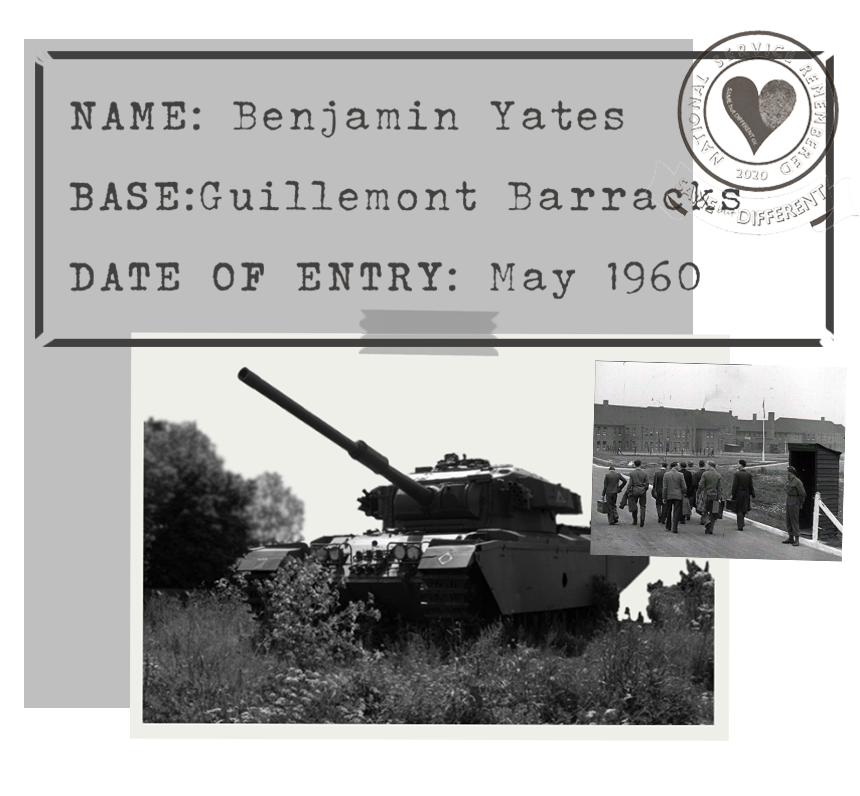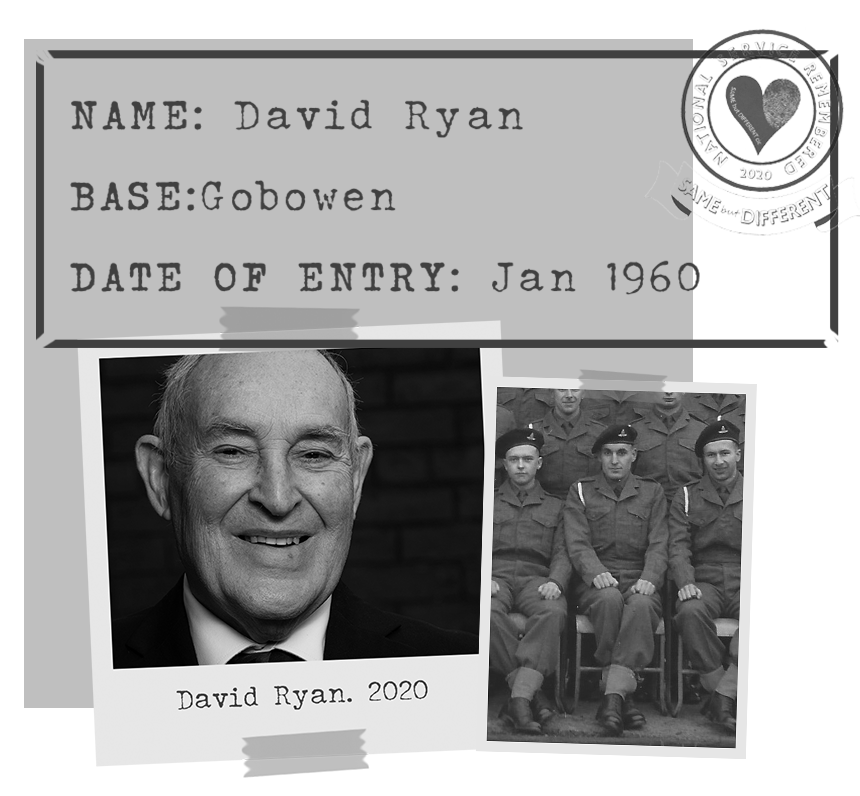“The army couldn’t afford to have people who didn’t obey.”
It was quite a funny story as to how I started my National Service.
I was a police cadet in the Denbighshire constabulary. I was stationed in Colwyn Bay and police cadets had an opportunity for an early call that I applied for. I had my call up papers soon after my 18th birthday in April 1955 and then I had my medical. I had my papers to join the Welsh Guards and about 10 days before I was due to join, it was announced that police cadets would be exempt from National Service. The Sergeant that I was with in Colwyn Bay then rang the Chief Constable, in Wrexham, and the Chief Constable said “you go young man, you do your National Service. It’ll do you good to do your National Service rather than stay as a police cadet in Colwyn Bay” and he was quite right. That’s how it started.
I had mixed feelings about it. I was a boy from a typical welsh nonconformist background and hadn’t seen very much I suppose. I was a little bit worried about going but afterwards, of course, it did me the world of good.
Initially, we did our square-bashing, drill training, in Caterham for 3 months. Normally you went from there to where you did your battle training but because it was the Egyptian crisis, the Suez Canal crisis, we went straight out to Egypt and we did our battle training there, in a place called Mowaska. We actually did our battle training in the desert - it was really tough.
The Suez Crisis was then just about coming to an end and we were involved in guarding equipment which had been sold off by the British Army. In that squad that I was a part of, we were all doing our first military role, 18 and 19, we were all that age.
“I had mixed feelings about it. I was a boy from a typical welsh nonconformist background and hadn’t seen very much I suppose.”
When we were out in Egypt, it was really tough in the heat. I can remember arriving in Egypt, we’d landed in Port Said, and we’d come across on the SS St. Helena troop ship. We arrived in Port Said, went on to the dock, then to the barracks in full khaki uniform and were immediately chased around the square by the Sergeant Major - that was our introduction to the barracks. We were absolutely soaking wet and that was our first sight of Egypt. It carried on from there really. That’s the sort of thing that made a man of you.
There was one particular soldier with us who decided that he wasn’t going to play soldiers like the rest of us and so he sat down on the Barracks’ square and refused to soldier. He was taken to the Guard room for two days and he came back, sat down again, and was taken to the Guard room again. But after 4 days, he was playing soldiers like the rest of us. That was what the army did to you, they couldn’t afford to have people who didn’t obey. That showed from the First World War - when they said go over the top, they didn’t think, they just had to go and that’s why really, that was ingrained in you that you just did what you were told.
Beforehand, I was quite content in what I was doing.
I was only just 18 and I was beginning to find my feet in the world. I was able to go out drinking, to the pubs, which I couldn’t before, so starting to enjoy myself. It was a bit of excitement thinking I was going out into the big world.
At the end of my two years - after staying in Egypt and leaving at the end of 1956 - we were stationed then at a camp in Shorncliffe in Kent and I became a batman for an Officer, Major J.H. Roberts, who became a Brigadier.
When I was his batman, he was stationed in regimental headquarters in London and I was stationed in Wellington barracks. I used to cycle from Wellington barracks to his home in Kensington and I would get his kit ready for whatever he was doing the following day. My station was in the rooms down below with the Nanny and he had two little children. That went on until I left the army in May 1957.
50 years later, my wife and I were watching ‘Trooping of the Colour’ and who was the Brigadier in charge of the parade but the son of the Major that I had been a batman to. My wife wrote to the Welsh Guards HQ in London and said that I had been this Major’s father’s batman and he sent a hand-written letter back to us. His mother had remembered me and he’d be delighted to get us tickets for the Trooping of the Colour. We had a lovely day out in London.
“I was able to go out drinking, to the pubs, which I couldn’t before, so starting to enjoy myself. It was a bit of excitement thinking I was going out into the big world. ”
One of the people from my squad became a Sergeant Major in the Welsh Guards.
Then when he finished, he joined the police force and I met up with him. He joined the same police force as me - the North Wales Police Force.
The police force was a disciplined organisation, the same as the army, but not quite as disciplined as the Welsh Guards. It’s still a disciplined, uniformed organisation and so what I’d gone through in the army, certainly helped me in the police force and I ended up as a Superintendent; I don’t think I would ever have got there without the training I had in the army.
I did 30 years in the police force and then I retired. I’m 83 now. I did something small afterwards to keep my mind busy but it was interfering with the golf so I retired when I was 60.
I don’t think youngsters of today would put up with what we had to put up with.
It’s doubtful I would think but it was no question with us, you had to do it. It was National Service, it was compulsory and that was it. We were in a different position to what they are now.
99% of the recruits accepted that it was something that had to happen and they had to survive their two years. The pay was awful in those days: 30 bob, 30 shillings a week and half of that went into what they call credits. If you lost any kit then it came out of your credits and any money that you had left in your credits, you were able to take out to go on leave.


